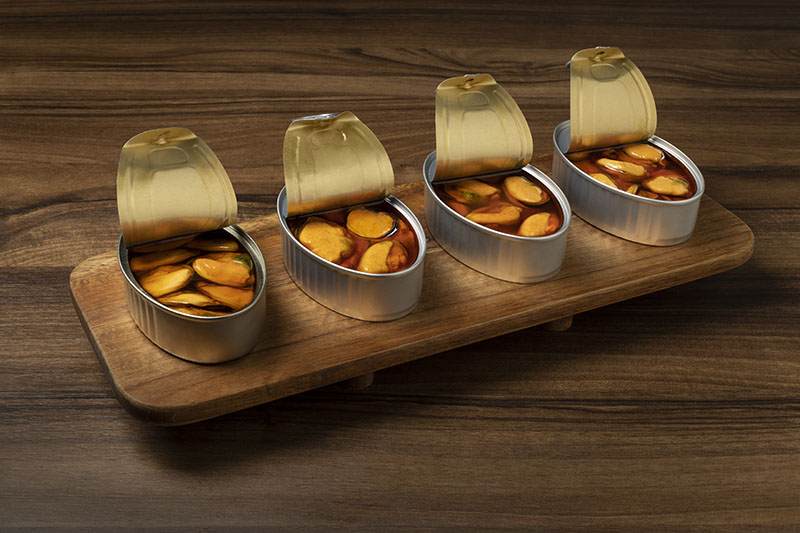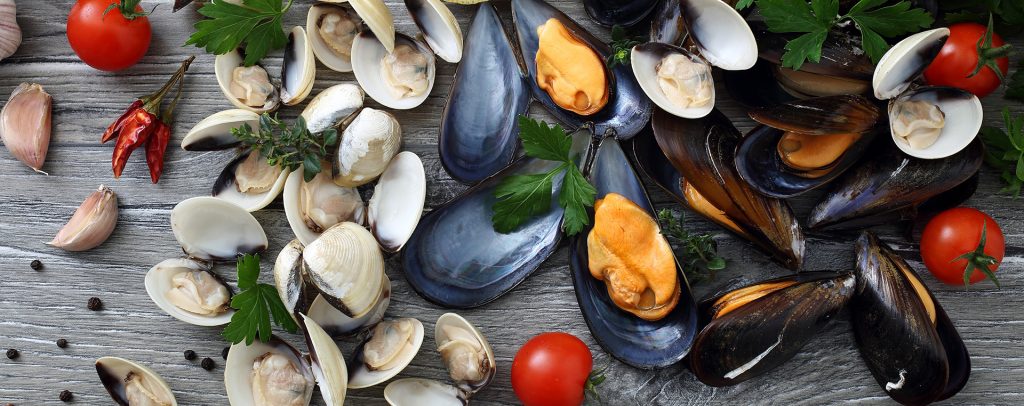“Nos meses sin r, marisco non comas, nin marisco merques” (In the months without an R, don’t eat seafood, don’t buy seafood). This is an old Galician saying that has been planted deep into the Spanish collective psyche. Many take this advice to heart, and never buy or eat seafood in the months between May and August. There are some who say a meal including more than one type of seafood ought to be reserved for the fall and Christmas, or that it should at least be restricted to months with an R (from September to April).
So, should you eat seafood only in months with an R?
To answer this question, the first step should be to understand the reason behind this piece of advice. The origin of this saying goes back to a time when there was no electricity, and refrigeration systems were not very trustworthy. There was no canned food yet either. This made it difficult to preserve certain food items, such as seafood, a product that may cause health issues if consumed in less than optimal conditions regarding freshness.
In months without an R, which coincide with the periods of more heat (spring and summer), the preservation of seafood became mission impossible. The high temperatures accelerated the degradation of the product, and people were advised against eating anything that hadn’t been caught very recently.
We should add that some species are in the middle of their mating season between May and August, and catching them in this moment would deplete future reserves. Moreover, during this period seafood become less tasty and their meat is not as smooth.
To summarize, following the advice about eating seafood in months with an R was both a matter of survival and of respect towards the environment, as well as of culinary enjoyment.
Seafood season: each species has its cycle
With the arrival of the refrigerator, the consumption of seafood in the months without an R stopped posing some of these challenges. However, the saying was kept alive to promote sustainability. When the females of certain species are spawning, the authorities declare closed season to protect the populations and guarantee supply for the next years.
However, if we point the spotlight towards certain details, we will see that not every species go through their mating seasons in the hottest months. For example, mussels, clams, European lobster or goose barnacles are delicious in the summer, outside their breeding season. If you would like a more detailed guide about the best dates to savour fresh seafood, you can take a look at a chart to see what is in season, such as this one by Direct Seafoods, fish and seafood providers with depots across the United Kingdom.
Following this advice has two advantages:
- Our environmental conscience will thank us. We will be using products that originate in our own coasts, which means a decrease in logistic cost and less carbon dioxide emissions.
- Our stomach will also be grateful. We will be ingesting seafood when it is at its best, both in terms of flavor and nutritional value.
Canned seafood, the perfect option to enjoy it all year round
If you don’t want to give up the flavor of octopus, or your beloved scallops, and you’d like to enjoy them all year round, there is a perfect solution; healthy, tasty and sustainable. This solution is, of course, Palacio de Oriente’s canned seafood.
At Palacio de Oriente we are provided with seafood of the highest quality, caught at their peak in maturity, and cooked during the necessary time for them to get rid of the excess water. Afterwards, we keep only the best pieces, and then we can them using our renowned pickled sauces and marinades. What’s more, without adding preservatives.
The canning ensures a tight closure, and thus, the right preservation of the product for years. This means that when you want to enjoy cockles, octopus, small scallops, squid or mussels, you only need to open one of our tins and sit back. Have you tried our mussels in pickled sauce with olive oil, for example? They’re a small pleasure you can have stored away in a corner of your pantry. Even in months without an R.




